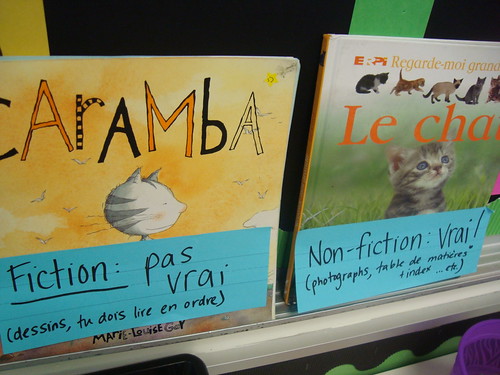I dislike homework. Some parents want it, some parents don’t. Some kids complete it regularly, some kids never do. Every year I have tried something different, and I still get the same results. Although our board still says that the expectation is that if you are in grade 3, you do 30 minutes of homework a night, and if you are in grade 4, you do 40 minutes a night, my principal happily approved this letter I sent home to parents last week…. YAY! Not only does it save me time to focus my planning on more “important” things, it also gives students to spend time learning with their families.

The Ontario Ministry of Education has updated it’s provincial Report Card – homework completion has been removed, and incorporated into the Learning Skill of Responsibility. Students are expected to:
- Fulfill responsibilities and commitments within the learning environment.
- Complete and submit class work, homework, and assignments according to agreed-upon timelines.
- Take responsibility for and manage own behaviour.
For nightly homework, students will be assigned special personalized projects throughout the term. It is also the expectation that if a student does not complete an assignment in class**, they will complete it for homework that night. Incomplete classroom work will only be sent home if the student was clearly not using class-time appropriately. It will not be sent home if they do not understand the assignment, or if they worked hard on it in the allotted time.
For regular nightly homework, students and parents are encouraged to
- READ NIGHTLY!!! Students are expected to be reading every day at home. Have students read to themselves, read to others and be read to (either by an adult, sibling or audio book). Talk to your child about what they have been reading – try practicing the strategies we work on in class. Reading in English at home will help students with reading comprehension, fluency, accuracy and the love of reading. Extra reading (in any language) will strengthen their reading/writing in French. (examples: picture books, novels, magazines, newspapers, online articles, video game instructions, etc.)
- Write together – Create stories, make books, grocery lists, emails/letters, family newspapers…
- Play Board Games. Ex) Monopoly (reading, math, estimating, probability, social skills), Scrabble (or Boggle or other word games), etc.
- Visit the public library
- Talk about your day, ask each other questions (weekly newsletter might help remind students)
- Cook or bake together- reading, sequencing, fractions, measuring
- Do ART together – painting, creating music, dancing, acting games…
- Play/Work/Spend time in the outdoors – collect things, talk, explore…
- Explore interesting websites together (try geocaching or learn about a favourite author)
Not only will the above homework ideas increase your child’s achievement at school, they will also be fun, family-oriented and expose your child to a variety of different learning situations.

No comments:
Post a Comment